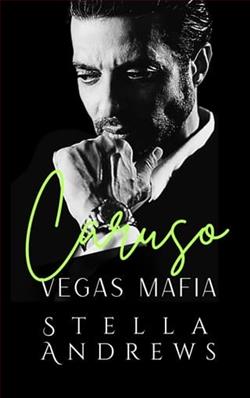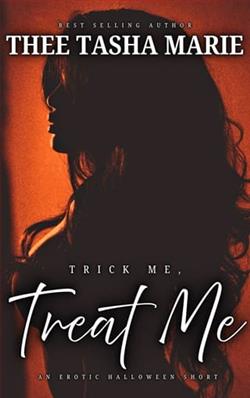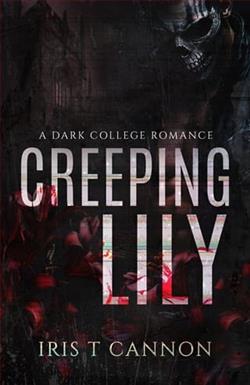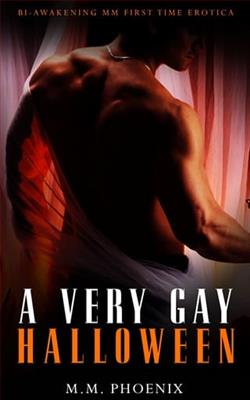Page 13 of Like a Love Story
“Why does she call her recordsLike asomething?” he asks. “Do you know?”
“I don’t know for sure,” I say. “But I think it’s because she’s all about the difference between what something looks like and what it really is. She’slike avirgin, but not really. Something islike aprayer, but not really. I guess she’s pointing to the illusion of sex and religion.”
“Oh” is all he says.
But I can’t stop. Now we’re not bantering anymore. Now we’re talking about something deadly serious... Madonna! “Stephen thinks that’s why she’s so popular with gays. Why divas in general are so popular with gays. Because we can see what’s hiding beneath the artifice. We know what it’s like to be one thing on the outside and another on the inside. All of us.”
I realize I’ve started speaking ofweandus, as if I’m including Reza. And he doesn’t correct me. And I have no idea at what moment I thought—no, I knew—that he was one of us. Doesheknow it? Am I wrong?
“That’s why Stephen thinks we’ll always be more into female divas, even when the world is enlightened enough for gay men to be pop stars and movie stars. Because worshipping a gay male star would be too literal for us. We need layers and symbolism. We communicate in code. As does Madonna. That’s what I think theLike athing is all about.”
Am I communicating in code? And if I am, what the hell am I even saying?
“I see,” he says now, and he sounds so proper, so stiff,so scared. We lock eyes, and I find in his a sadness so deep and bottomless that I want to reach inside him and heal it. And in his sadness, I recognize my own, which I usually cover up with anger. I have a crazy thought... if he’s from Iran, he probably knows a bunch of people who died in the revolution, just like I know a bunch of people who died of AIDS. Most of the other kids in school don’t know anyone who died, except for their grandparents maybe.
I reach into the Madonna section to pull out another record, and as I do, our hands graze each other. I feel something. Is it electricity? I don’t know. It feels like a cousin of what I felt up there at the protest. It feels like being reminded that the point of BEING alive is to FEEL alive.
“In betweenLike a VirginandLike a Prayer, she releasedTrue Blue,” I say as I pull the record out. “It’s interesting, right? Sex and religion aren’t clear-cut to her, but love is. She didn’t call itLike a True Blue.”
“Like a Romance,” he says.
“Like a Love Story,” I add.
We each hold records in our hands, our fingers touch each other, and our eyes are locked in some secret shared space we never knew existed until just now.
And then he says, “I’ll purchase them both. I think I love Madonna.” And he pays for the records.
We walk for a bit, toward the subway. He says he’s afraid of taking the subway, and I tell him that’s absurd. “The subway is the one place in the city where you canbe guaranteednotto run into the exact kind ofassholeswho are afraid to ride the subway,” I say.
He asks if I just called him an asshole, and I say maybe. We might be flirting. Or we might not be. I have no idea how to read him.
Then I remember something. “Hey, you have my backpack?”
“Your book bag,” he says. “I am so sorry. It’s been sitting in my room for days. I promise I haven’t touched it.”
I think about what’s inside, a bunch of junk, and then I remember my most prized possession is in there... those notecards Stephen made me when I asked him what OUR history was. I can’t believe I left those. That shrink my parents sent me to would probably say I left the bag there hoping Reza would open it, hoping he would read those cards and feel what I felt when I read them... some connection to the past, to a community, some sense of belonging. “It’s okay,” I say. “Just give it to me next time we see each other.”
“Okay,” he says.
He’s about to go when I call him back. “Hey,” I say. “I’m just wondering... were you in Iran during the revolution?”
“I was,” he says. “My mother wanted to leave, but my father didn’t. We went to Toronto six years ago, when my mother left him.”
“Oh,” I say. “So your dad’s still there?”
“No,” he says. “Well, not exactly. He, um, died.”
There’s something so final about those words. Hedoesn’t embellish them. He doesn’t say he passed away, or something like that. “I’m so sorry,” I say.
Reza shrugs, like there’s nothing else to say about the subject.
“I’ve lost a lot of people too,” I say. “People I knew through Stephen. They’ve died. All around me.” I stop myself from saying more. What I’m thinking is that if Stephen is my spiritual father, the dad I was meant to have, then we’re both being raised by widows. But I don’t say that. Because Stephen’s not my father, and because Reza doesn’t look like he wants to continue this conversation.
“I’m sorry,” he says. “Death is never easy.”
“Yeah, death sucks,” I say. And then, desperate to end on a positive note, I add, “But life can be awesome, right?”
He smiles sadly, like he’s not ready to answer that question yet.















